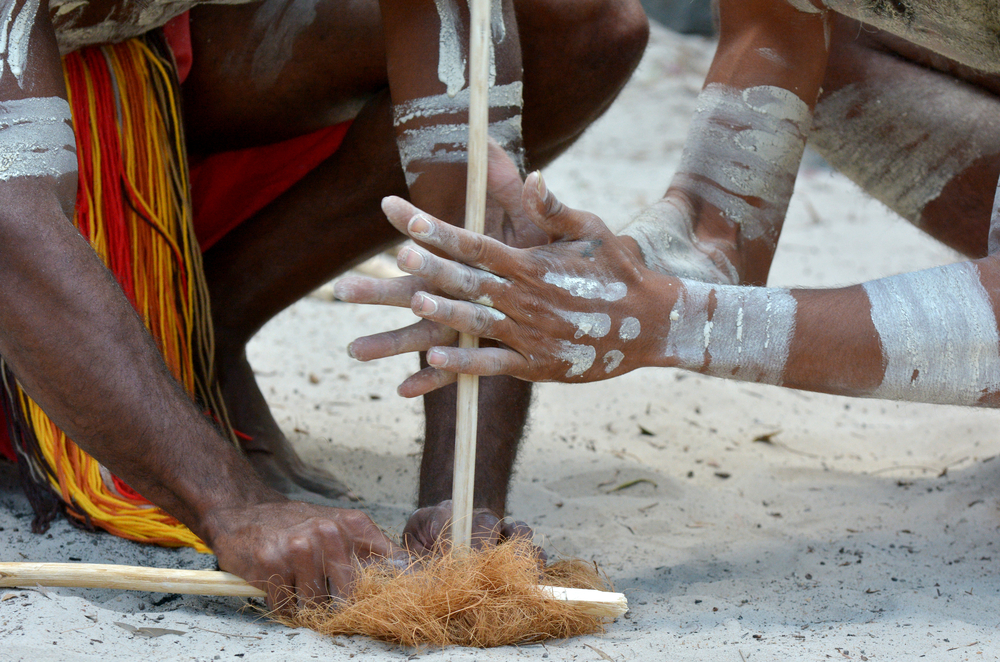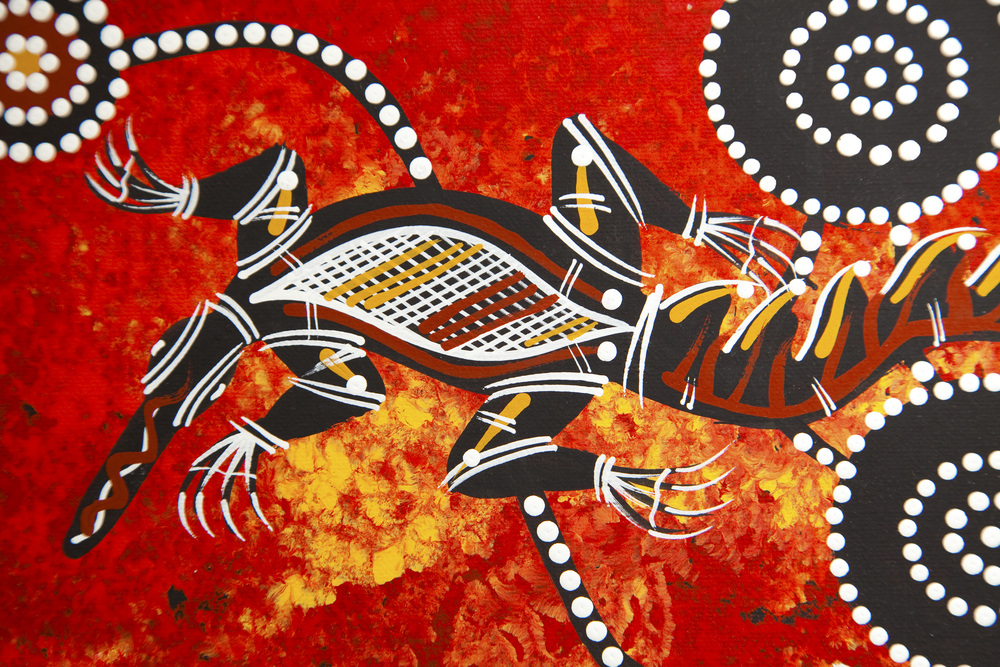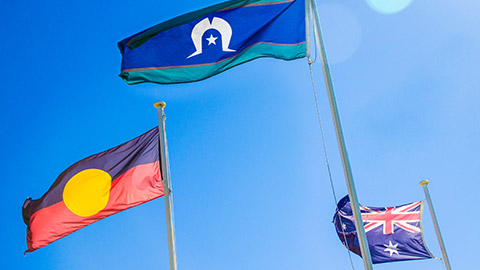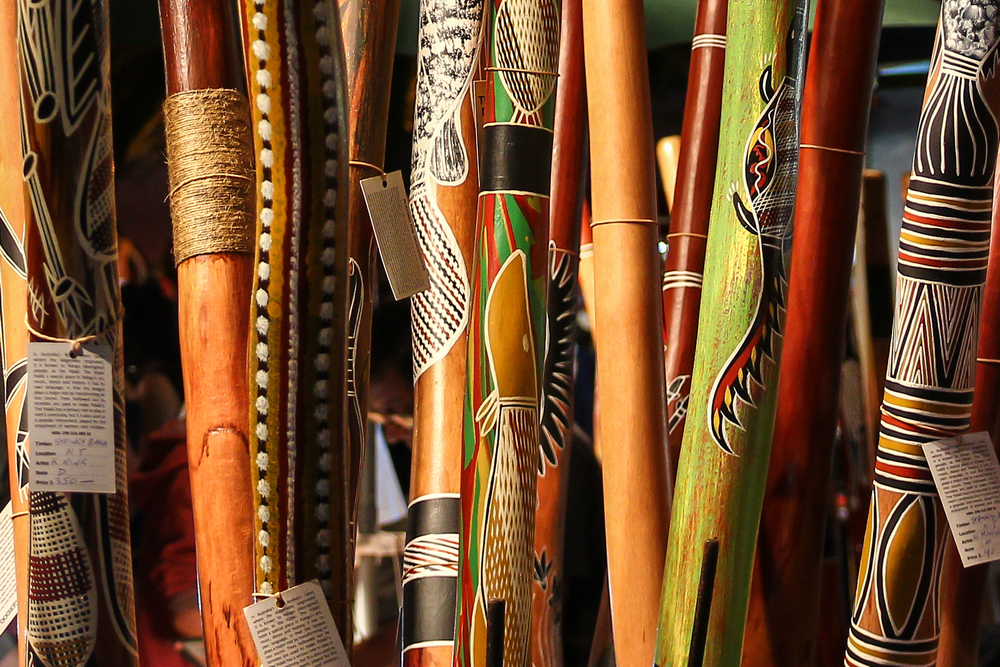Welcome to your next module Work with Diverse People and Promote Aboriginal and/or Torres Strait Islander Cultural Safety. This module is going to look a little different as this is a clustered module meaning that there is more than one unit of competency. The learning content and assessments comprise of both units of competency:
- CHCDIV001 Work with Diverse People
- CHCDIV002 Promote Aboriginal and/or Torres Strait Islander Cultural Safety
Please find details for both units below.
CHCDIV001 Work with Diverse People
Unit Title
CHCDIV001 – Work with diverse people
Unit Purpose
This unit describes the skills and knowledge required to work respectfully with people from diverse social and cultural groups and situations, including Aboriginal and/or Torres Strait Islander people.
Content
- Section 1: Appreciating Diversity
- Section 2: Effective Cross-Cultural Communication
Resources/Readings
Readings A – J are located in the associated readings tab.
Suggested Hours
Although everyone will work at their own pace, we suggest you allow approximately 40 hours to complete this unit competently, including any assignments.
Time Frame
The recommended time frame this unit is 4 weeks.
Assessment
This unit will be assessed by completing the assessments in the assessment tab.
CHCDIV002 Promote Aboriginal and/or Torres Strait Islander Cultural Safety
Unit Title
CHCDIV002 – Promote Aboriginal and/or Torres Strait Islander cultural safety
Unit Purpose
This unit describes the skills and knowledge required to identify Aboriginal and/or Torres Strait Islander cultural safety issues in the workplace, model cultural safety in own work practice, and develop strategies to enhance cultural safety.
Content
Section 1: Introduction to cultural safety issues in the workplace
Section 2: Modelling cultural safety in own work
Section 3: Develop and evaluate cultural safety strategies
Resources/Readings
Readings E – J are located in the associated Readings tab of the module.
Suggested Hours
Although everyone will work at their own pace, we suggest you allow approximately 40 hours to complete this unit competently, including seminars, tutorials, assignments and any practical activities.
Time Frame
The recommended time frame this unit is 4 weeks.
Assessment
This unit will be assessed by completing the assessments in the assessment tab.
How to Use This Module
This module contains two units. All of the information that you need to complete the assessment tasks associated with this unit. You must read through all of the information provided (both the module and associated readings) before attempting the assessment tasks.
Throughout this module there are a few icons used to help you. These include:
Tip
This is used to indicate the presence of tips or additional instructions that may assist you as you work through this module. They are designed to help you expand your knowledge and skills and deepen your understanding of how concepts and practices are applied in workplaces.
Read
You will find these throughout the module. They indicate that a particular Reading contains additional information on the topic that is being discussed at that point.
Reflect
This indicates a self-reflection question. You are not required to submit answers to these questions. They are designed to get you thinking more about the topic and to consider key points in order to aid your understanding.

CHCDIV001 Work with Diverse People
Upon completion of this unit, you should be able to:
| Element | Performance Criteria |
|---|---|
| 1. Reflect on own perspectives | 1.1. Identify and reflect on own social and cultural perspectives and biases 1.2. Work with awareness of own limitations in self and social awareness 1.3. Use reflection to support own ability to work inclusively and with understanding of others 1.4. Identify and act on ways to improve own self and social awareness |
| 2. Appreciate diversity and inclusiveness, and their benefits | 2.1 Value and respect diversity and inclusiveness across all areas of work 2.2 Contribute to the development of workplace and professional relationships based on appreciation of diversity and inclusiveness 2.3 Use work practices that make environments safe for all |
| 3. Communicate with people from diverse backgrounds and situations | 3.1 Show respect for diversity in communication with all people 3.2 Use verbal and nonverbal communication constructively to establish, develop, and maintain effective relationships, mutual trust and confidence 3.3 Where a language barrier exists, use effective strategies to communicate in the most efficient way possible 3.4 Seek assistance from interpreters or other persons according to communication needs |
| 4. Promote understanding across diverse groups | 4.1 Identify issues that may cause communication misunderstandings or other difficulties 4.2 Where difficulties or misunderstandings occur, consider the impact of social and cultural diversity 4.3 Make an effort to sensitively resolve differences, taking into account diversity considerations 4.4 Address any difficulties with appropriate people and seek assistance when required |
Knowledge Evidence
The candidate must be able to demonstrate essential knowledge required to effectively complete tasks outlined in elements and performance criteria of this unit, manage tasks and manage contingencies in the context of the work role. This includes knowledge of:
- Concepts of cultural awareness, cultural safety and cultural competence and how these impact different work roles
- Concepts and definitions of diversity
- Own culture and the community attitudes, language, policies and structures of that culture and how they impact on different people and groups
- Features of diversity in Australia and how this impacts different areas of work and life:
- Political
- Social
- Economic
- Cultural
- Legal and ethical considerations (international, Federal, State/territory, local) for working with diversity, how these impact individuals workers, and the consequences of breaches:
- Discrimination:
- Age
- Disability
- Racial
- Sex
- Human Rights:
- Universal Declaration of Human Rights
- Relationship between human needs and human rights
- Frameworks, approaches and instruments used in the workplace
- Rights and responsibilities of workers, employers and clients, including appropriate action when rights are being infringed or responsibilities are not being carried out
- Discrimination:
- Key areas of diversity and their characteristics, including:
- Culture, race, ethnicity
- Disability
- Religious or spiritual beliefs
- Gender, including transgender
- Intersex
- Generational
- Sexual orientation/sexual identity – lesbian, gay, bisexual, heterosexual
- Key aspects, and the diversity, of Australia’s Aboriginal and/or Torres Strait Islander cultures, including:
- Social, political and economic issues affecting Aboriginal and/or Torres Strait Islander people
- Own culture, western systems and structures and how these impact on Aboriginal and/or Torres Strait Islander people and their engagement with services
- Potential needs of marginalised groups, including:
- Protective factors
- Physical, mental and emotional health issues/care needs
- Consideration of impacts of discrimination, trauma, exclusion and negative attitudes
- Resources that support individuals and organisations to embrace and respond to diversity
- Language and cultural interpreters
- Imagery
- Influences and changing practices in Australia and their impact on the diverse communities that make up Australian society
- Impacts of diversity practices and experiences on personal behaviour, interpersonal relationships, perception and social expectations of others
Performance Evidence
The candidate must show evidence of the ability to complete tasks outlined in elements and performance criteria of this unit, manage tasks and manage contingencies in the context of the job role. There must be evidence that the candidate has:
- Undertaken a structured process to reflect on own perspectives on diversity
- Recognised and respected the needs of people from diverse social and cultural backgrounds in at least three situations:
- Selected and used appropriate verbal and nonverbal communication
- Recognised situations where misunderstandings may arise from diversity, and
- Formed appropriate responses to misunderstandings that may arise from diversity
CHCDIV002 Promote Aboriginal and/or Torres Strait Islander Cultural Safety
Upon completion of this unit, you should be able to:
| Element | Performance Criteria |
|---|---|
| 1. Identify cultural safety issues in the workplace | 1.1. Identify the potential impact of cultural factors on service delivery to Aboriginal and/or Torres Strait Islander clients 1.2. Identify critical issues that influence relationships and communication with Aboriginal and/or Torres Islander people 1.3. Establish key aspects of cultural safety in consultation with Aboriginal and/or Torres Strait Islander people 1.4. Evaluate the extent to which cultural safety is integrated in own work and workplace |
| 2. Model cultural safety in own work | 1.1. Ensure work practices are grounded in awareness of one’s own cultural bias 1.2. Reflect awareness of own and other cultures in work practices 1.3. Use communication techniques and work practices that show respect for the cultural differences of Aboriginal and/or Torres Strait Islander people 1.4. Engage with Aboriginal and/or Torres Strait Islander interpreters and colleagues as cultural brokers, according to situation nee |
| 3. Develop strategies for improved cultural safety | 3.1 Support the development of effective partnerships between staff, Aboriginal and/or Torres Strait Islander people and their communities 3.2 Identify and utilise resources to promote partnerships 3.3 Devise and document ways to support the delivery of services and programs that are culturally safe and encourage increased participation 3.4 Integrate strategies that encourage self-determination and community control in services and programs |
| 4. Evaluate cultural safety strategies | 4.1 Agree on outcomes against which cultural safety strategies can be measured 4.2 Involve Aboriginal and/or Torres Strait Islander people in evaluations 4.3 Evaluate programs and services against desired outcomes 4.4 Revise strategies based on evaluation with appropriate engagement of Aboriginal and/or Torres Strait Islander people |
Knowledge Evidence
The candidate must be able to demonstrate essential knowledge required to effectively complete tasks outlined in elements and performance criteria of this unit, manage tasks and manage contingencies in the context of the work role. This includes knowledge of:
- Concept of Aboriginal and/or Torres Strait Islander cultural safety in the community services and health context, and its relationship with:
- Cultural awareness
- Cultural competence
- Legislative context for Aboriginal and/or Torres Strait Islander cultural safety
- The diversity of Aboriginal and/or Torres Strait cultures
- Historical, social, political and economic issues affecting Aboriginal and/or Torres Strait Islander people and their engagement with community services and health systems, including:
- Impact of European settlement
- Loss of land and culture
- Racism and discrimination
- Past and present power relations
- Own culture, western systems and structures and how these impact on Aboriginal and/or Torres Strait Islander people and their engagement with services
- Factors that contribute to Aboriginal and/or Torres Strait Islander ill health and common diseases experienced by these groups of people:
- Impact of trauma on individuals’ ability for:
- Decision-making
- Communicating
- Understanding
- Retaining information
- Impact of trauma on individuals’ ability for:
- Ways to involve Aboriginal and/or Torres Strait Islander people in the planning and delivery of services and programs
Performance Evidence
The candidate must show evidence of the ability to complete tasks outlined in elements and performance criteria of this unit, manage tasks and manage contingencies in the context of the job role. There must be evidence that the candidate has:
- Promoted Aboriginal and/or Torres Strait Islander cultural safety in the context of at least one workplace
- Research culture and history, the impact of European settlement, loss of land and culture and the importance of law and kinship
- Evaluated ways to improve communication with Aboriginal and/or Torres Strait Islander people who may be clients or colleagues

CHCDIV001 Work with Diverse People
This unit introduces you to the skills and knowledge required to work effectively in a multicultural and diverse society. You will learn how to appreciate diversity and work in both a respectful and effective manner with people from a diverse range of backgrounds.
Overview of Sections
Section 1: Appreciating Diversity
In this section of the module you will be introduced to some of the key considerations and practices involved in working with diverse people. You will learn how to identify and reflect on your own social and cultural biases and how to improve your own awareness in order to work in a culturally appropriate way. You will also learn how to demonstrate a respect for and appreciation of diversity throughout your work practices.
Section 2: Effective Cross-Cultural Communication
In this section of the module you will learn how to effectively communicate with people from diverse backgrounds. You will learn how to use appropriate verbal and non-verbal communication skills to foster effective communication, how to seek appropriate assistance when required, and how to resolve communication issues and promote understanding across diverse groups
CHCDIV002 Promote Aboriginal and/or Torres Strait Islander Cultural Safety
In this unit you will learn more about the concept of cultural safety including how to model cultural safety in your own work practice as well as how to develop strategies to enhance cultural safety for Aboriginal and/or Torres Strait Islander people within your workplace.
Overview of Sections
Section 1: Introduction to Aboriginal and Torres Strait Islander Cultural Safety
In this section of the Study Guide you will be provided with a brief history of the colonisation of Australia and a discussion of the lasting impact it has had for Aboriginal and Torres Strait Islander people. You will be introduced to the concept of cultural safety and begin to build the knowledge and skills required to effectively implement commitments to cultural safety at both a personal and organisational level.
Section 2: Modelling Cultural Safety in Your Own Work
This section of the Study Guide focuses on how workers can model cultural safety in their own practice. This builds upon the foundation of self-awareness of own and others’ culture, as well as ability to constantly reflect on own cultural bias. Moreover, you will learn a range of communication skills and practices that will help foster respectful and safe relationships with Aboriginal and/or Torres Strait Islander clients or colleagues.
Section 3: Develop and Evaluate Cultural Safety Strategies
In this section of the module you will learn about promoting cultural safety on an organisational level, and participating in processes set out to develop and evaluate cultural safety strategies. An important element of promoting cultural safety is developing genuine partnerships with Aboriginal and/or Torres Strait Islander communities and/or organisations. It is important that they are engaged from planning, implementing to evaluating stages. Finally, cultural safety is a continuous learning journey for practitioners as well as organisations.

We respectfully acknowledge the First Nations people in Australia; we acknowledge the cultural and spiritual connection that Aboriginal and Torres Strait Islander peoples have with the land and sea.
We respectfully acknowledge Aboriginal people and Torres Strait Islander people as two unique and diverse peoples with their own rich and distinct cultures.
We pay our respects to Elders past and present as well as the existing and emerging leaders who walk together in partnership on this journey.
